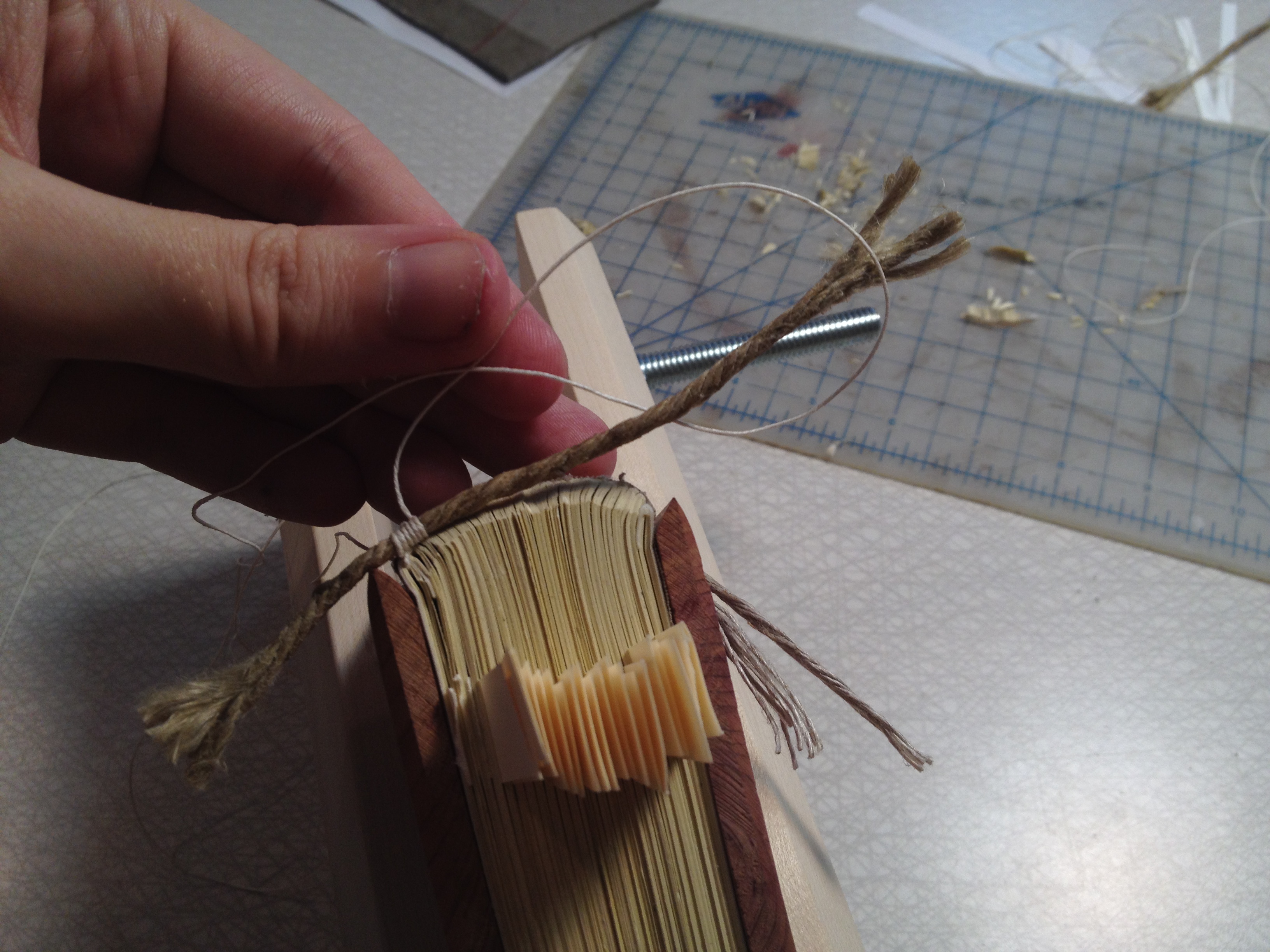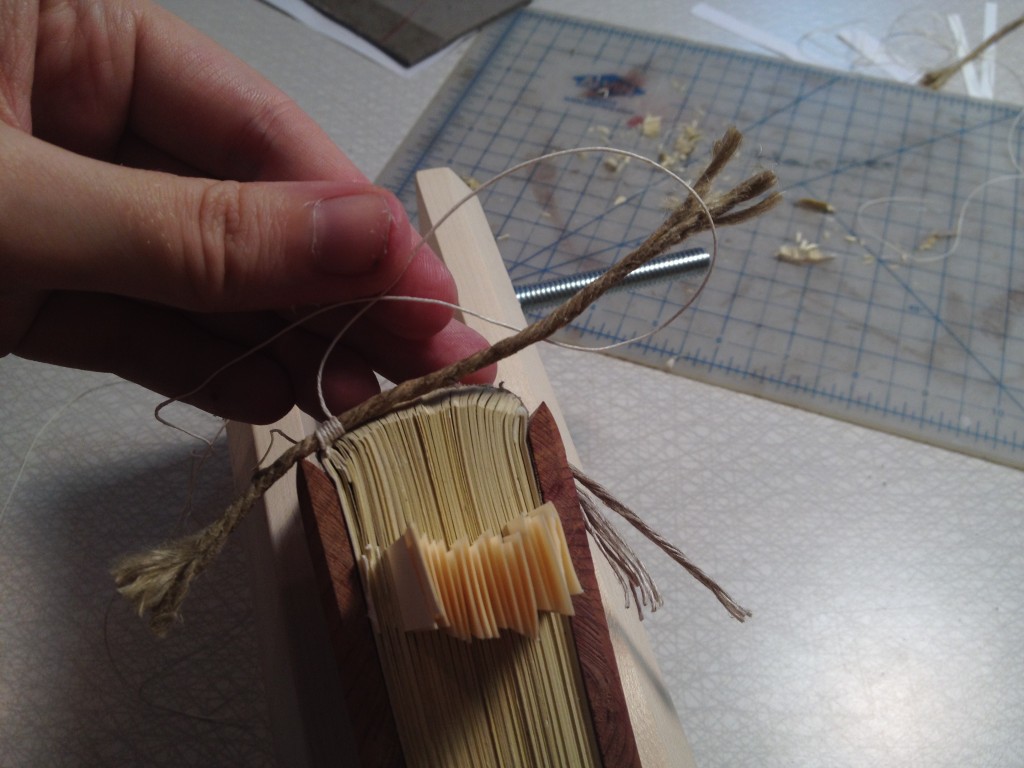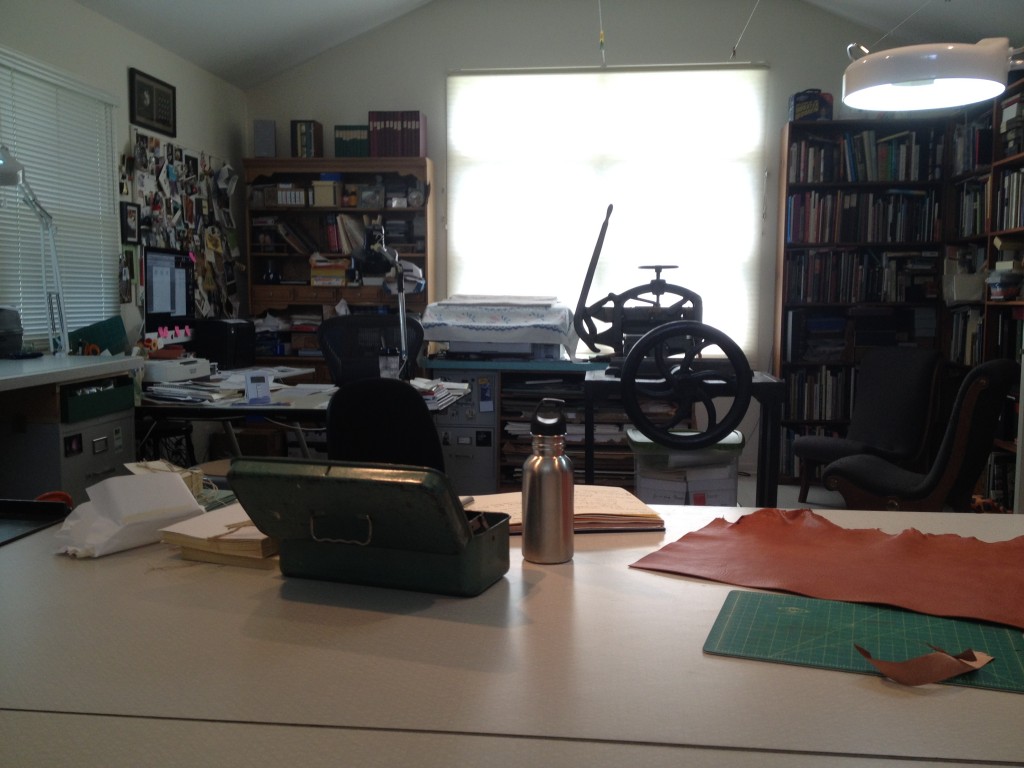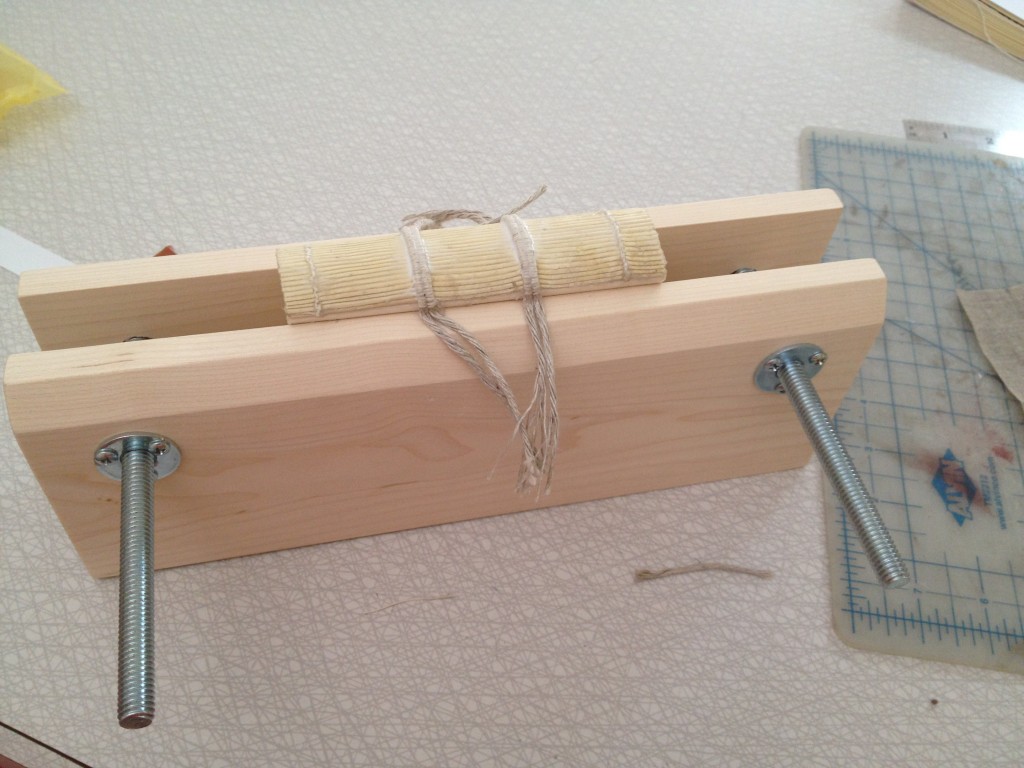
Mentorship? What’s that?
This semester, I’m taking advantage of one of Columbia’s more interesting (but perhaps lesser used) opportunities: I’m mentoring under a working professional in my field!
Every Tuesday morning, I take the Metra train out into the suburbs to meet up with Karen, a professional bookbinder in the Chicago area. Columbia allows its students to work under professionals like Karen for course credit – in my case, 3 credit hours. Part of my tuition fee goes toward compensating my mentor for her time, and I’m responsible for buying my own supplies and materials, which ends up costing me around what I’d pay for any other class.
So how does one take a mentorship? What do I do while I’m there? How did I choose my mentor? It’s much simpler than you might imagine. My work tends to parody or copy books of years gone by, and I wanted to learn more about historical book structures and decoration techniques. Because the Book & Paper program is much more conceptual than technical, we simply don’t have all of the tools, equipment, and know-how for me to learn these types of highly specific skills in-house. Instead, the faculty in the department recommended I seek help from someone proficient in this type of fine binding.
A professor of mine recommended Karen, and together she and I drafted a proposal for my self-made class. The proposal was a justification of why this mentorship was important, what I planned to do while I was there, and what the final outcome would be. It was submitted to my department head, accepted, and we were home free!
So what DO I do when I visit Karen in her home studio? It’s not like an internship, in which I help her in her practice and complete odd jobs while learning the business. It’s basically like being tutored or taking a very, very small bookbinding class. Karen binds a book in the way I would like to learn, and I follow her example while she explains why and how she’s doing what she’s doing.
Generally, I have homework, which involves finishing a task that Karen demonstrated in-session or preparing materials for the following week. I can finish this homework using the studios and equipment at Columbia.
Although I’ve only just begun my mentorship, I’m enjoying learning not only the techniques that Karen teaches me, but also having her recommend tools of the trade, tell me about past binding jobs she has completed, and familiarize me with the bookbinding community in general. While I’d imagine it’s only feasible to take a mentorship once or twice (after all, classes are made for a reason – and you only need to learn so many highly-specified skills!) I would certainly recommend it for anyone looking to make connections outside of school while still working toward their degree.



